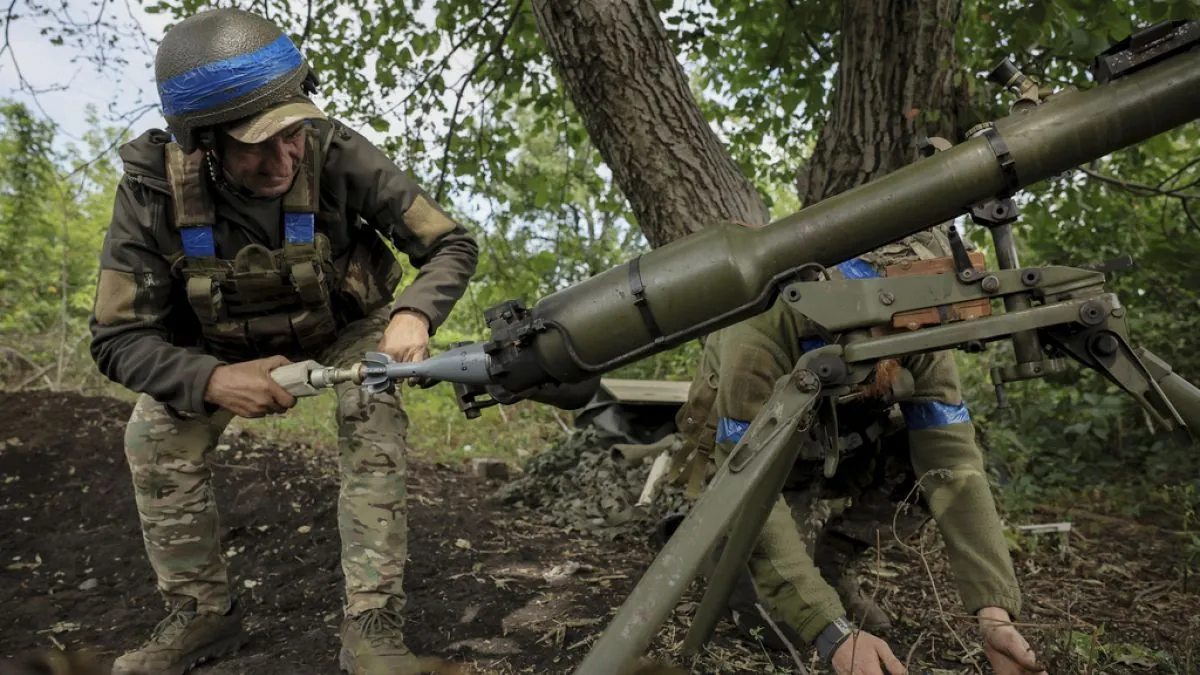Ukraine's Kursk Offensive Exposes Russia's Conscript Dilemma
Ukraine's invasion of Russia's Kursk Oblast enters its third week, revealing Moscow's reliance on poorly trained conscripts. The offensive's unexpected impact on Russian domestic politics adds a new dimension to the conflict.

On August 6, 2024, Ukraine launched an unexpected offensive into Russia's Kursk Oblast, marking a significant escalation in the ongoing conflict between the two nations. As the operation enters its third week, it has exposed critical weaknesses in Russia's military strategy and sparked domestic unrest.
The invasion's objectives remain unclear, but analysts suggest several possibilities:
- Creating a buffer zone to protect northern Ukrainian cities like Sumy and Kharkiv
- Gaining leverage for future peace negotiations
- Drawing Russian forces away from their offensive in eastern Ukraine
However, Moscow's response has been surprising. Instead of redeploying experienced troops from the Ukrainian front, the Kremlin has opted to send conscripts with minimal training to defend Kursk.
This decision has had dire consequences. On August 14, Ukrainian forces captured the town of Sudzha, located just 10 kilometers from the Russia-Ukraine border. In this operation, they took 102 Russian prisoners, many of whom were young conscripts. This event marked the largest single capture of Russian troops since the conflict's escalation in February 2022.

The use of conscripts in combat has revealed significant issues with Russia's military preparedness:
- Inadequate training: Some captured conscripts reported receiving only days of instruction before deployment.
- Limited combat experience: Many conscripts had fired only a few rounds before entering the battlefield.
- Poor equipment: Conscripts often lack the heavy weaponry necessary for effective defense.
This situation contrasts sharply with international standards. For instance, US Army infantry recruits undergo 22 weeks of training before joining combat units.
The Kursk offensive has also had unexpected political repercussions within Russia. Vladimir Putin's previous assurances that conscripts would not serve in combat roles have been exposed as false. This revelation has led to rare public protests in Russia, challenging the authoritarian government's narrative.
While it's uncertain whether Ukrainian strategists anticipated this political fallout, it represents a significant, if unintended, victory for Kyiv. The erosion of public trust in the Putin regime could have far-reaching consequences for Russia's ability to sustain its war efforts.
As the invasion of Kursk continues, its impact extends beyond territorial gains. It has exposed critical vulnerabilities in Russia's military strategy, challenged domestic political stability, and potentially altered the long-term dynamics of the conflict.
"We received only three days of training before being sent to the front. I had never fired a real weapon before coming here."
This ongoing situation in Kursk Oblast, a region with a rich history dating back to the 16th century, adds another chapter to its storied past. Known for hosting one of the largest tank battles in history during World War II and home to the world's largest magnetic anomaly, Kursk now finds itself at the center of a conflict that could reshape the geopolitical landscape of Eastern Europe.


































